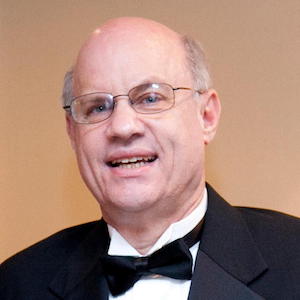
Robert Levy
is an Intellectual Property Attorney with over 35 years’ experience. Bob has held various corporate patent counsel positions with GE, AT&T, and Technicolor where he has concentrated his practice on worldwide patent prosecution, patent assertion, defense of third-party patent claims, and inventor counseling in high technology areas such as software, computer systems, machine vision, video compression, wireless devices, and content storage and delivery. Bob is a graduate of CorneII University with a BS in Engineering and a JD from Illinois Institute of Technology Chicago Kent College of Law. He is admitted to practice in New Jersey and is registered before the United States Patent and Trademark Office. Bob has served as a CLE lecturer for many years on various patent law topics including Ethical Considerations in Patent Practice and Protecting Computer-Related Inventions.

Recent Articles by Robert Levy
Since the issuance by the United States Supreme Court of its opinion in Alice Corporation Pty Ltd. v. CLS Bank International, 573 U.S. 208, 134 S. Ct. 2347 (2014), the United States Patent and Trademark Office (USPTO) has increased its focus on patent eligibility. As a consequence, patent applicants now receive more claim rejections under 35 U.S.C. § 101, leading to protracted prosecution. While rejections under 35 U.S.C. § 101 are likely unavoidable, patent attorneys and agents can take steps during application preparation and prosecution to minimize the likelihood of such rejections and to successfully rebut such rejections when they do arise.
Recently, the United States Court of Appeals for the Federal Circuit (“the Federal Circuit”) issued its opinion in Solutran, Inc. v. Elavon, Inc., 2019-1345, 2019-1460 (Fed. Cir., July 30, 2019) in which the Court held claims 1-5 of Solutran’s U.S. Patent No. 8,311,945 invalid under 35 U.S.C. § 101 for failing to recite patent eligible subject matter. In reversing the District Court, the Federal Circuit found that the claims of the patent recited an abstract idea (electronically processing paper checks) and that the claims failed to transform that abstract idea into patent-eligible subject matter. More importantly, the Federal Circuit dismissed Solutran’s argument that the claims were patent eligible simply because they were novel and non-obvious, noting that: “We have previously explained that merely reciting an abstract idea by itself in a claim—even if the idea is novel and non-obvious—is not enough to save it from ineligibility.” The Solutran decision is not the first time the Federal Circuit has held that novelty/non-obviousness does not bear on the question of patent eligibility.

![[IPWatchdog Logo]](https://ipwatchdog.com/wp-content/themes/IPWatchdog%20-%202023/assets/images/temp/logo-small@2x.png)
